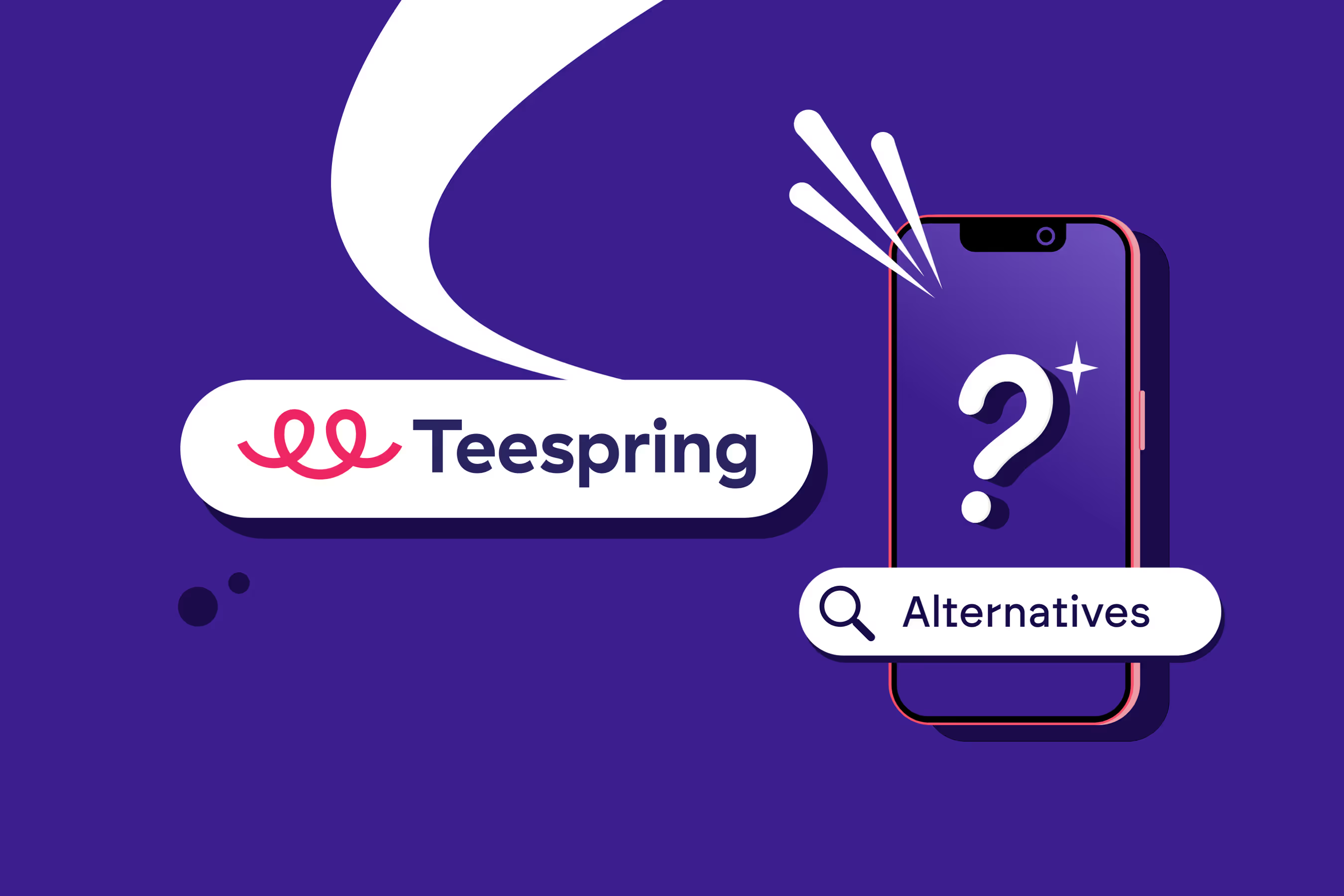Print-on-demand business is gaining popularity among the Gen-Z and the millennial audience. To meet the demands, platforms like Teespring have made it easy for independent sellers to start their own online stores and sell custom products.
But many creators and small business owners want more control, better product quality, and faster shipping which may not be available with Teespring.
That’s why they look for Teespring alternatives and the good news is that there are plenty of options out there.
In this guide, we’ll talk about the best Teespring alternatives for 2026. We’ll cover their features, pros, and cons to help you choose the right fit for your business.
Let’s get started!
Why Consider Teespring Alternatives?
Teespring is simple to use, which makes it great when you’re just getting started. But as your business grows, it can start to feel a bit limiting.
For starters, the product range is pretty small. You mostly get t-shirts, mugs, and hoodies. If you want to sell something different like posters, phone cases, or laptop sleeves, Teespring might not have what you need.
Another thing people mention (especially on Reddit) is that shipping can be slow or unreliable, especially for customers outside the U.S. That’s not great for your brand.
You also don’t get much control over your store’s look or feel. It’s more like listing your stuff in a marketplace than running your own brand.
And if you’re hoping for fast, easy design tools, like mockups, Canva-style editors, or AI-powered helpers, Teespring isn’t built for that.
Many creators, artists, and ecommerce sellers are switching to Teespring alternatives that offer:
- A wider product range, including tech accessories, art prints, and eco-friendly items
- Faster shipping with fulfillment centers in the US and EU
- Advanced design tools to help launch polished products quickly
- Shopify, Etsy, and WooCommerce integrations for full storefront control
Also Read:
- How to Start a Shopify Store with Podbase: The Ultimate Guide for Success
- Print on Demand Statistics That Matter [Infographic]
Best Teespring Alternatives in 2026 (with pros & cons)
Let’s talk about what makes each Teespring alternative special, their key benefits, and the pros and cons.
Podbase (Editor’s Pick)
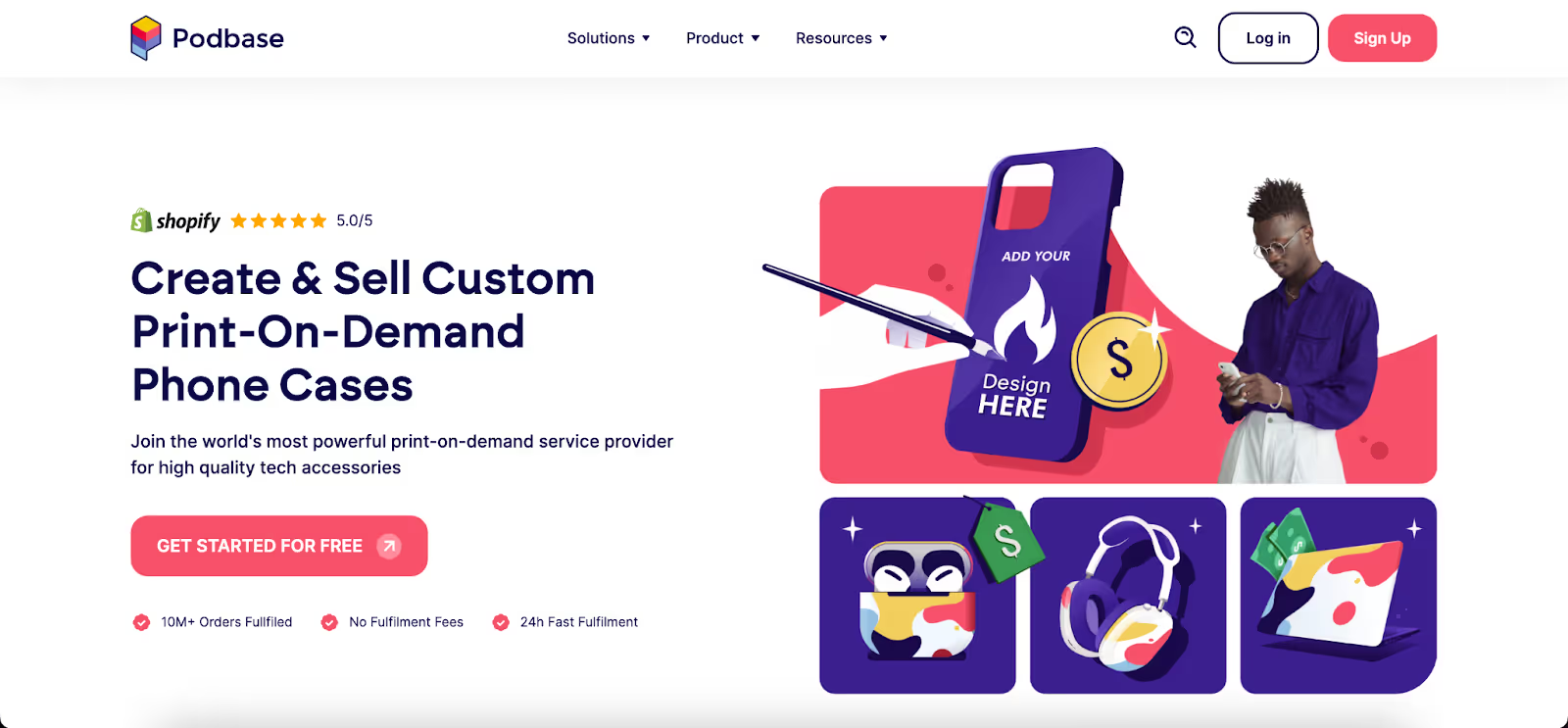
Image via Podbase
Podbase is a top choice if you want an alternative to Teespring. If you're searching for the best Teespring alternatives in 2026, Podbase stands out. It specializes in high-quality print-on-demand products like tech accessories, wall art, and drinkware - perfect for creators looking to expand beyond apparel. With seamless integrations and custom branding, Podbase is an ideal platform to grow a modern ecommerce business.
You can easily customize your product pages and your store’s look. Podbase lets you sell on Etsy, Shopify, and WooCommerce.
It lets you create product images fast and connects well with Canva. Plus, it offers quick shipping in the US and Europe.
Pros
- Offers unique products like tech gear and home decor, not just clothing
- Fast shipping in the US and Europe
- Good for creators who use Canva, AI tools, or sell on TikTok
Cons
- Has fewer products than some other platforms
- Fewer tutorials and smaller community
Printify
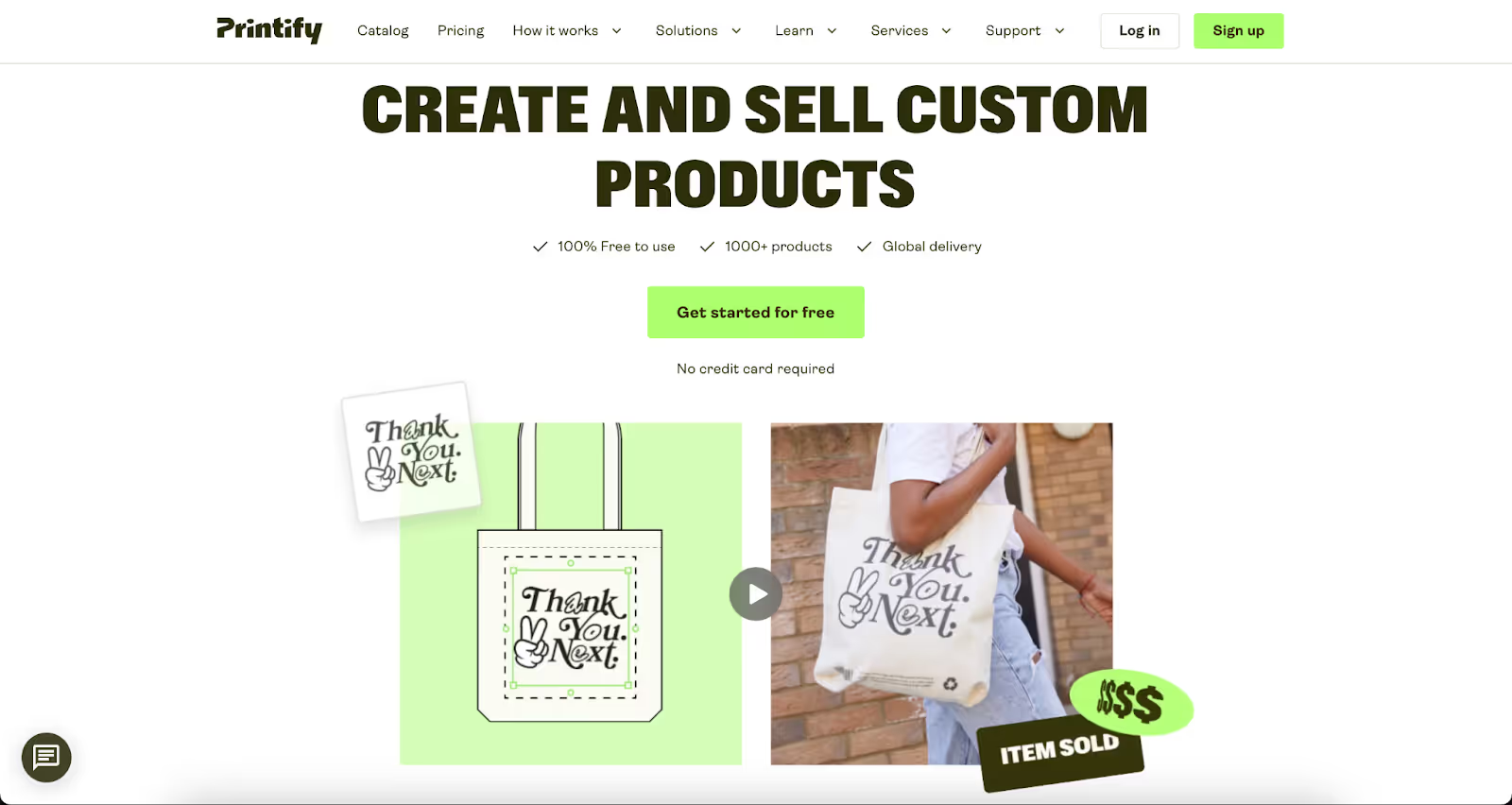
Image via Printify
Printify is a popular Teespring alternative offering a wider range of products. You can find clothing, drinkware, home decor, and accessories.
What makes Printify stand out is its network of print partners across different regions. This lets you pick a supplier based on factors like shipping speed, product quality, and price.
Pros
- Huge catalog with 1,300+ customizable items
- Multiple print providers for pricing and shipping flexibility
- Easy integration with Shopify, Etsy, and WooCommerce
Cons
- Quality and shipping times can vary
- Mockup tools aren’t very advanced
Also Read:
- Apple iPhone 17: Why Print-On-Demand Sellers Should Get Ready Now
- Smart Ways to Make Money as an Artist
Gelato
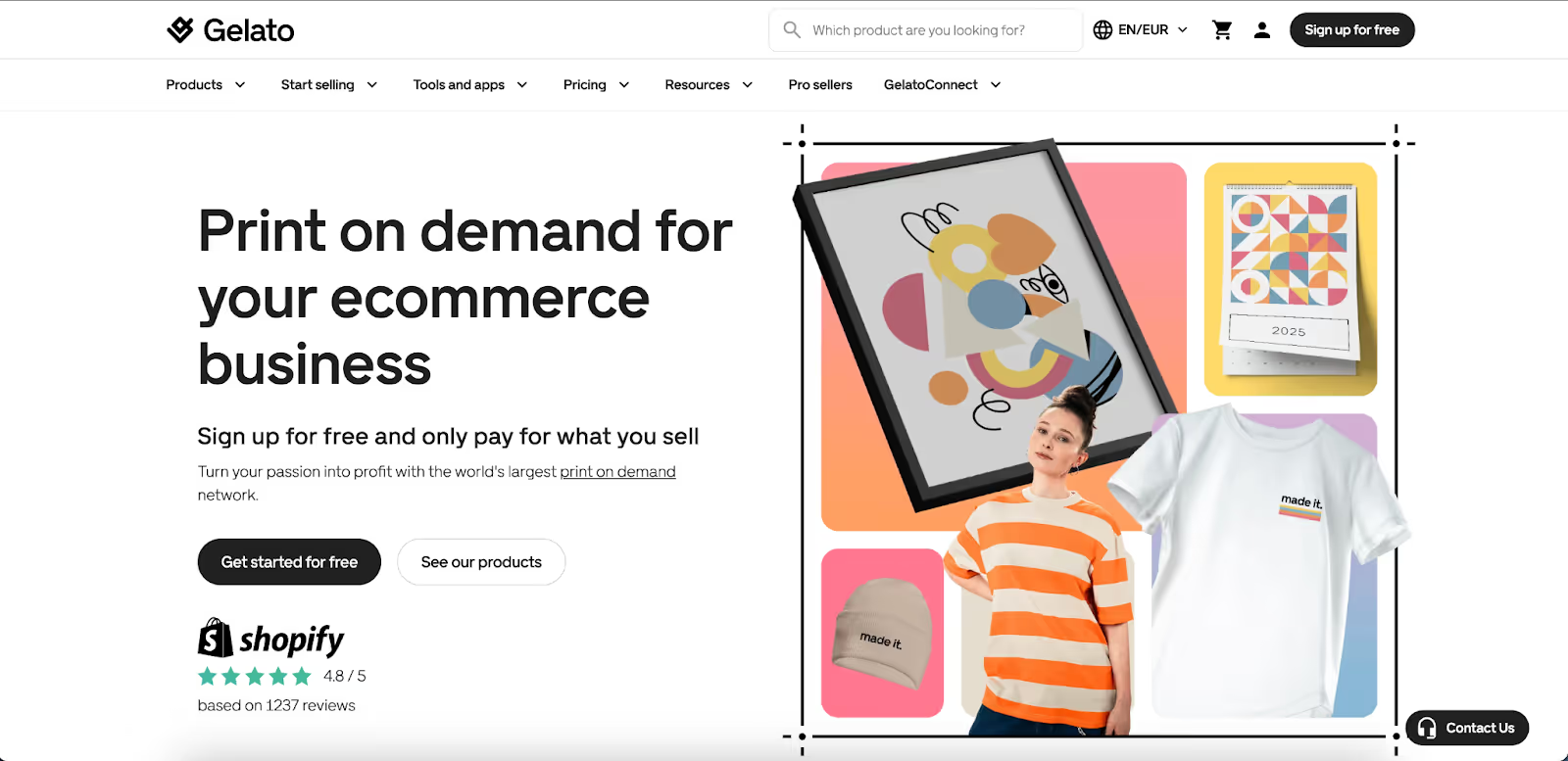
Image via Gelato
Gelato is an eco-friendly Teespring alternative in 2026 with a strong global network of print hubs in over 30 countries. This allows fast delivery while cutting down on carbon emissions.
The platform is also great for on-demand printing with local fulfillment.
Pros
- Global fulfillment in 30+ countries
- Lower environmental impact with made-to-order printing
- Seamless integrations with ecommerce stores
Cons
- Fewer options for branded packaging
- Limited creative control over the storefront
Fourthwall
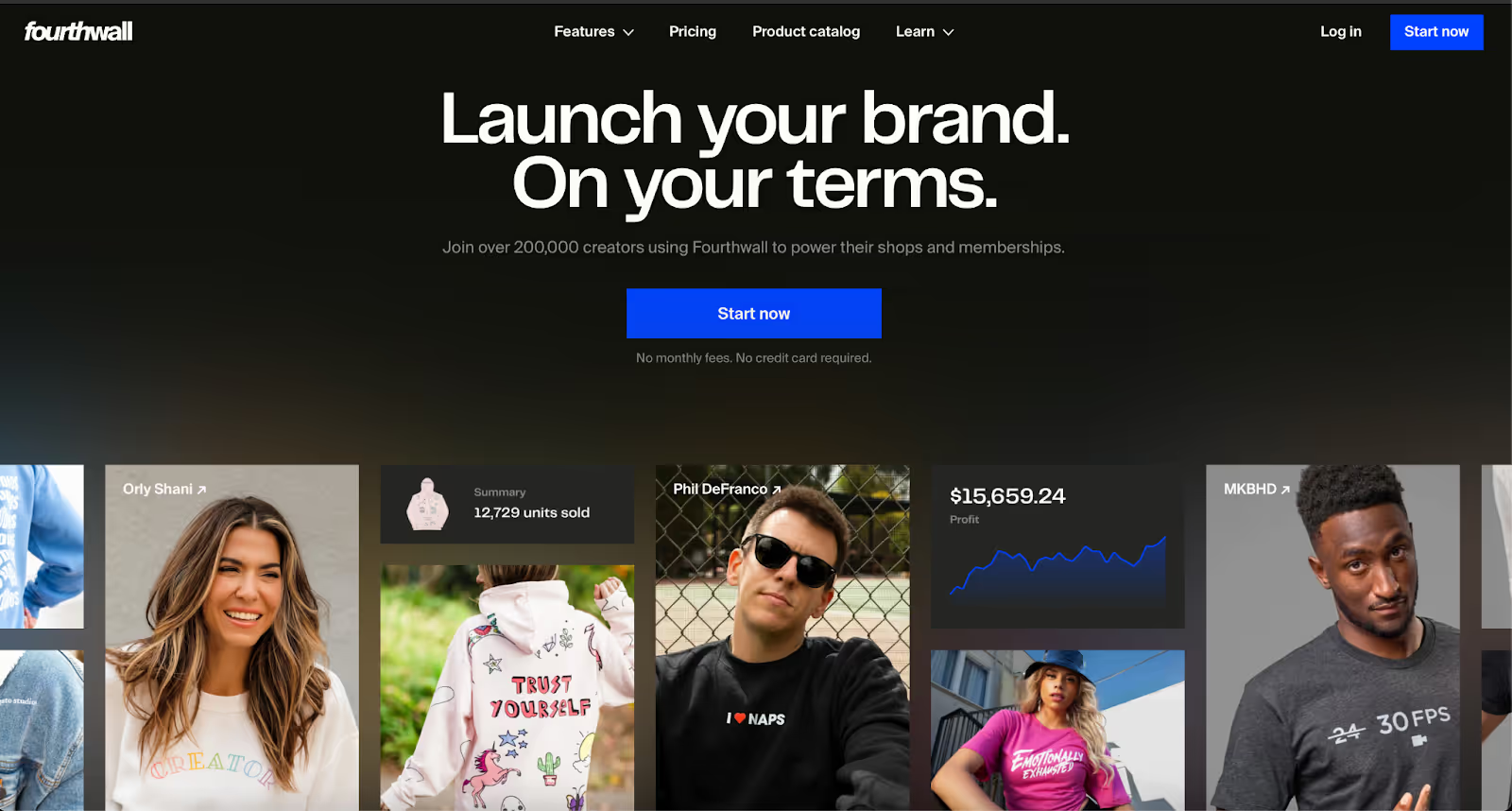
Image via Fourthwall
Fourthwall combines product fulfillment with tools to sell digital products, memberships, and fan experiences. This makes it a great choice for YouTubers, streamers, and content-focused brands.
This Teespring alternative also lets you launch a fully branded storefront. You can collect emails, offer monthly memberships, and provide exclusive perks to your audience.
Pros
- Easy-to-use store builder with drag-and-drop
- Built-in options for memberships, digital downloads, and fan support
- Integrated payment, email marketing, and analytics tools
Cons
- Smaller product catalog
- Limited branding options
- May not be ideal for ecommerce brands with large inventories
Also Read:
Redbubble & Zazzle
Redbubble and Zazzle are two of the best Teespring alternatives for independent artists who want to grow their brand globally.
Simply upload your designs and the platform takes care of product creation, sales, shipping, and customer support. You also enjoy the built-in traffic and discovery features, making it easier for new customers to find your work.
Pros
- Large built-in audience for organic traffic and sales
- No need to manage your storefront or logistics
- Huge range of printable items and creative formats
Cons
- Lower profit margins
- Limited control over branding and packaging
- Harder to build long-term customer relationships or email lists
Sellfy
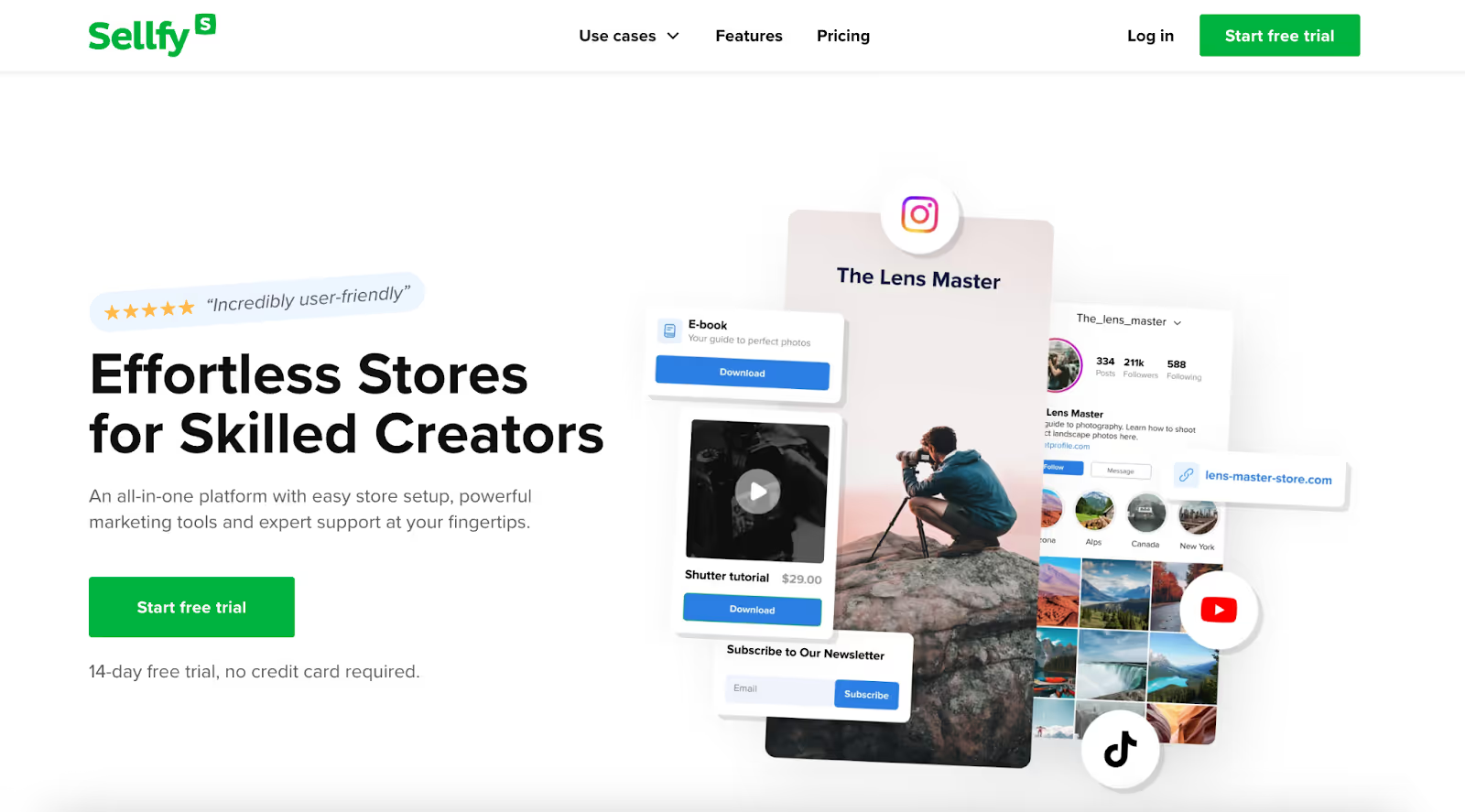
Image via Sellfy
Sellfy is one of the most flexible Teespring alternatives, letting creators sell both print-on-demand and digital products.
You can build a fully branded storefront without needing extra plugins or a separate website. Sellfy takes care of everything from hosting and payments to product fulfillment.
From one simple dashboard, you can sell physical merchandise, digital downloads, subscriptions, or product bundles.
Pros
- Supports print-on-demand, digital products, and subscriptions in one place
- Simple interface with easy product uploads and sales tracking
- Custom domain and email marketing tools included
Cons
- Limited integrations
- Smaller product catalog
- Basic storefront design options
Also Read:
- Is Print-On-Demand Profitable? An In-Depth Guide
- Top Print-On-Demand Companies and How to Choose the Best for Your Business
Podbase vs Teespring: Why It’s the Better Choice
Podbase is a better choice than Teespring if you want more control and flexibility.
Teespring has basic templates and doesn’t let you customize much. But with Podbase, you can design your store the way you want and connect it to Shopify, Etsy, or WooCommerce.
It also ships faster using local print centers in the US and EU, which means quicker delivery and less impact on the environment.
Both are free to start, but Podbase gives you more pricing control and better profit margins because you sell through your own store.
Plus, Podbase has more unique products like phone cases, tech gear, and lifestyle items. It’s a great option for TikTok creators, Etsy sellers, and anyone using AI tools to design products.
How to Migrate from Teespring to Podbase
Here’s a quick way to get started:
- Step 1: Sign up free on Podbase.
- Step 2: Upload your existing designs or create new ones using Canva or AI design tools.
- Step 3: Pick and choose from high-quality products.
- Step 4: Connect your store directly with Shopify, Etsy, and WooCommerce.
- Step 5: Launch and go live.
Podbase works especially well with TikTok shops. You can showcase your custom products in short, engaging videos.
You can also promote your products on Etsy. This way, you tap into a large creative marketplace while keeping your backend on Podbase.
Another way to promote your products is through influencer collaborations. So, partner with micro-influencers or friends to boost reach without huge ad spend.
Also Read:
- Print-on-Demand vs Dropshipping: The Essentials Explained
- How To Start A Print-on-Demand Business: Full Guide


